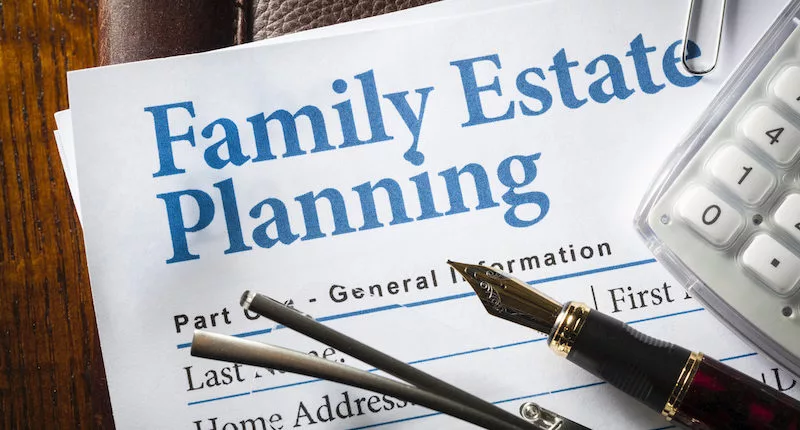Estate Planning for Elderly Parents: What to Know
What’s involved with estate planning for elderly parents? It can be quite complicated at first, so here’s a helpful guide to get started.
Read on.
Introduction
Our parents are not getting any younger. As we grow older every year, so do they. And, as they age, their health will begin to decline. There will come a time when you need to address the situation and make plans for the future, though it is never an easy thing to do. It is hard talking about end-of-life issues with anyone – especially those who took care of you your whole life.
When you feel that it is right, gather your siblings and prepare for the talk about the future with your elderly parents. Be sure to gain an understanding of everything involved – including the options and key points of interest. Working with an estate planning attorney can help you to approach the subject with greater ease.
In the meantime, here’s what you need to know when it comes to estate planning for elderly parents.
Finding the Right Time
Nothing in life is certain. If we’ve learned anything after going through this global pandemic, it is that life as we know it can change in an instant. This is why you don’t want to wait for a life-changing event to spark the conversion. The time to have it is now.
Get together with your siblings and an estate planning attorney to discuss the ins and outs – and make a plan to start the discussion. You don’t want to just drop this on mom and dad one day at dinner – nor do you want to just bombard them at their home as if it is an intervention. Rather, set a date to spend time together as a family and approach the topic from a place of love, care, and concern.
The Status of Your Parent’s Estate Planning
Parents do not always tell us everything that they do. They may actually already have their estate planning taken care of. Or, maybe it was started but never finished. The first step in getting the discussion going, then, is to find out what they have or haven’t done. Just because they say their planning has been done, you may want to address timelines.
Have there been any changes in the family since it was done? Are the docs up to date? Are the executors still alive or relevant? Are minor children grown? Have there been marriages or divorces? There are all things that need to be addressed. Many elderly individuals think that just because they have their estate planning paperwork done that it doesn’t need to be addressed anymore – or that there will be workarounds should certain life changes occur that impact the will or trust.
Truth is, outdated documents can easily cause the estate to go through probate or face certain issues that were never intended by your parents.
Important Topics to Discuss
There is a lot involved in estate planning – probably even too much for one conversation. However, in the course of your planning, there are a few topics that you want to be sure to address.
- The Estate Plan. It is important for your parents to share their wishes. There should be no discrepancies, as this can tear families apart after the death of a parent. Talking openly about their wishes and confirming it is what their documents say is a crucial step. This should be done with an estate planning attorney to make sure it is all recorded properly and justly.
- Net Worth Statement. A net worth document that gives children an idea of the value of their parent’s estate. As they age, they are going to require additional care, such as medical needs, assisted living or nursing home care, and so forth. Knowing just how much or how little assets your parents have can help in planning for their future. Will they be able to afford these additional expenses? Or is this something you will need to plan for and take care of?
- Power of Attorney. When estate planning, it is important to have a power of attorney drawn up. This will designate someone to make decisions concerning finances, healthcare, or everything should the parents be unable to do so. Remember, life changes quickly – and while your mom or dad may seem very coherent and of sound mind today, tomorrow they may not. By then it is too late to sign a power of attorney.
- Setting Up a Trust. Trusts are very helpful in keeping estates out of probate. They can even help with needs in the future, such as medical or nursing home care. While once thought to be a thing that only wealthy people had, today more and more middle-class families are reaping the benefit of a trust. It is important that trusts are set up early, though, before it is too late. There are many different types of trusts, each with its pros and cons. It is best to have an estate planning lawyer walk you through this process.
The Importance of this Conversation
Talking about death is hard – very challenging and emotionally exhausting. But, death is inevitable. The more planned you are now, the easier things will be in the future. The loss of a parent is devastating – especially when it happens out of the blue. Having their affairs in order allows you to just grieve. You don’t have to worry about who is in charge of what – or whether the estate is going to be tied up in probate for months and months. It will all be taken care of already.
Of course, one very vital step in all of this is to seek out the guidance and legal expertise of an estate planning attorney. As you know, these are important documents and steps that need to be taken – so you don’t want to leave anything undone. The only way to ensure that everything is taken care of properly – and legally – is to let a professional handle it. From trusts and power of attorney documents to finding funding for long-term care, an experienced lawyer will prove to be quite an asset for your family.
Are you in search for a certified attorney to represent you?
Let us help you find one today!


